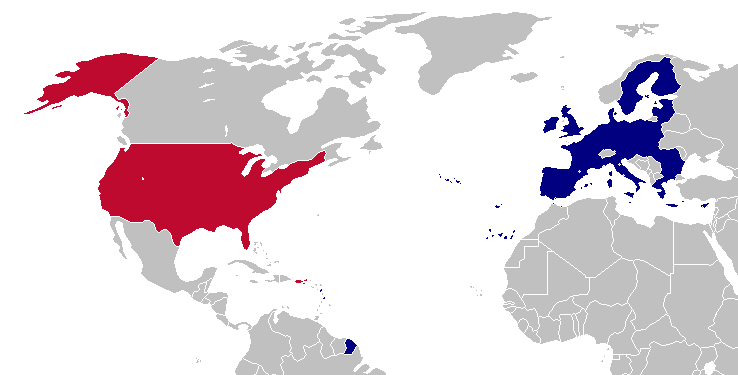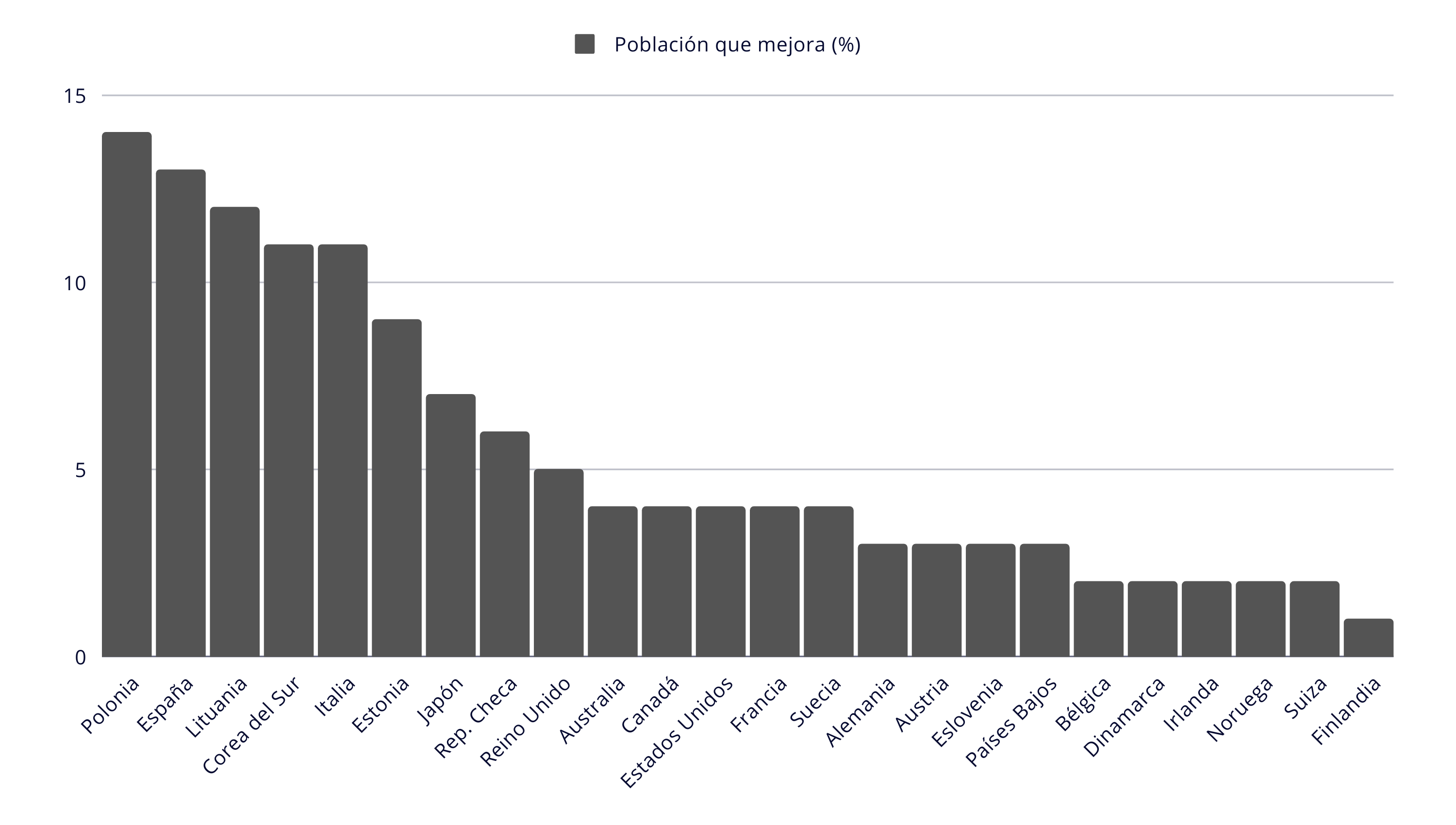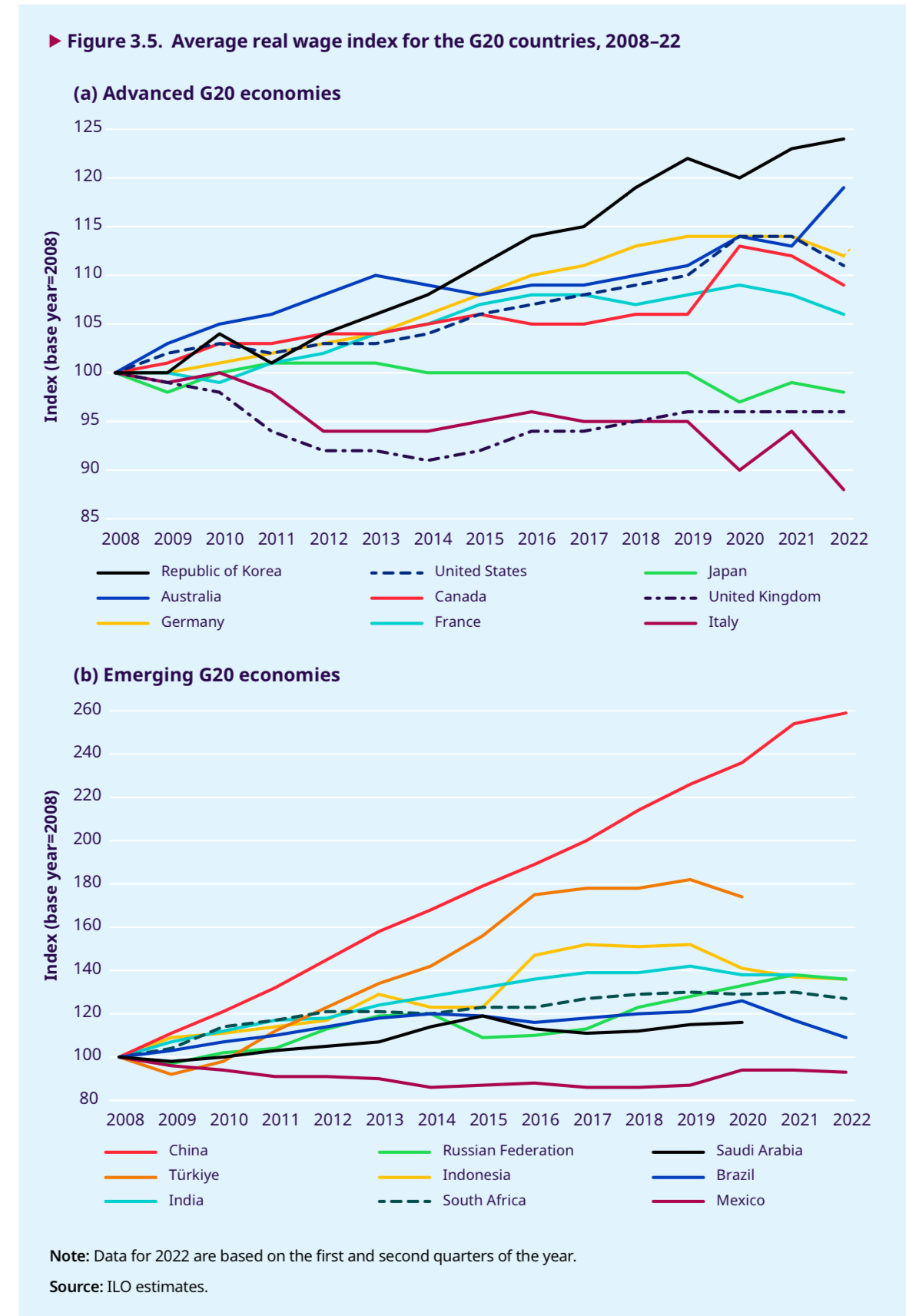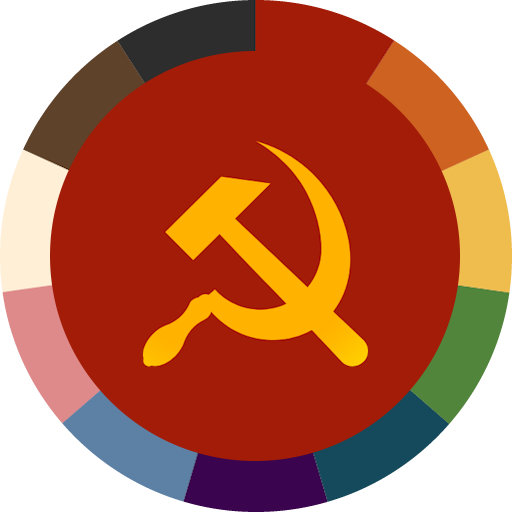Neptium
Class struggle in all its forms.
- 19 Posts
- 144 Comments

 12·8 months ago
12·8 months agoKind of funny that there are those in West that still cling onto the notion that Chinese production is inferior while over here people say if you want shit done you call China lol

 12·8 months ago
12·8 months agoNationalisation might be one of their few good proposed policies along with land reform.
And that’s all that is needed. A complete reformation of the relations of production will have a profound effect in elevating the productive forces.
Your critique on the manifesto seems lazy because most bourgeois democracies and their parties over-inflate and exaggerate in their manifestoes. Doesn’t say much about their class character.
Many things can happen when a large mass movement built on consensus is in charge.
I am not saying the EFF is one either, but the critique you bring forward doesn’t showcase your points well.
Bringing back military conscription? For what?
It is answered in the quote you mentioned.
offering life skills and discipline.
Teaching the masses life skills is GOOD.
Military conscription (which in the cited quote doesn’t necessarily imply “conscription”) is not only about invading other countries or protecting sovereignty. That’s colonizer talk.
The army can help with a lot of people’s projects, mobilizing resources for the betterment of the country. Furthermore, most places that have conscription also have options to participate in other governmental bodies, like firefighting. It is not strictly just into the army.
Furthermore, all AES countries have mandatory military conscription.
The countries that do not have military conscription are often those tainted with liberal individualism, prioritising the rights of the “individual” rather than the service to the community especially wrt to Global South countries.
many of which have very little to do with Marxism.
May I get specific examples of which policies “are not relevant” to Marxism? And I want something that is unequivocally and undeniably for the empowerment of the comprador classes and Capital.

 1·9 months ago
1·9 months agoAnd in the other way, especially accounting for costs of living.
See my comment above.
Poland, Lithuania and Estonia in the same cathegory as Switzerland or Luxembourg is like the joke about man and dog having averagely three legs.
You are merely arguing against the presentation of the data on the map, not the methodology of the data or the conclusions made from the data.
PERCENTAGE OF THE NATIONAL POPULATION BELOW WORLD AVERAGE INCOME OR CONSUMPTION

In this image found in the article I sourced the map from, it is made perfectly clear that Poland, with a population of 15% earning below the world average, is obviously vastly different than that of Switzerland of around 2%. In other words, proportionally, there are 7.5x more people in Poland that live with wages below the world average.
It is purely arbitrary that the author made the cutting off point for the legend 20%, when it could easily be in 10%, which would seperate Poland and Lithuania (but not Estonia) from Switzerland. The author could also have based it on quartile ranges (which would defeat the nature of this analysis).

 22·9 months ago
22·9 months agoIt doesn’t consider the subsistence farmers
I am unsure how this helps your argument.
If anything this all further reinforces the nature of unequal exchange and imperialism.
There are rarely any “true” full-time subsistence farmers in the Global South, for example, during periods of drought, or after seasonal harvests, - subsistance farming doesn’t guarantee full-time job security nor does it entail that (for example) the farmer is able to pay for school or healthcare for the farmer or their family.
and people who obtain resources without the market.
That is of statistical insignificance, unless you are going to argue that Capitalism and Imperialism (what you call the “market”) have not infilitrated atleast 5% of the world populace (400 million people). And if so - may I get a source? I must read about the 400 million people or more that escaped Capitalism!
Even if 80million people were not counted, 1% of the world population or the entire population of Germany, it would still not affect the conclusions made from the article and the map.
As described in the article:
To broaden the focus, we can apply the same reasoning, not only to the United States, but to the rich nations as a whole. We follow the World Bank’s classification of high-income countries:
The average national income per capita in high-income countries in 2021 is $55,225 per year (this and the following figures are in 2023 international dollars). The total world population is 7.888 billion people. Repaying the entire world’s population with the average income of the average citizen in high-income countries would require about $436 trillion per year. However, the total national income of the entire world amounts to just $146 trillion annually. If all the world’s annual income – eliminating the parasitic counterparts of labor: profit, rent, interest rates, etc. – was destined to simple reproduction, and thus distributed equally among the entire world population, it would be enough to cover barely one third of the average income of high-income countries: that is, about $18,510 per capita per year.As long as the “proletariat” in the Global North earns more than their labour - earn more in return than their labour is entitled for - their material interests are in direct contradiction to the interests of the Global South masses.
Nor does it take into account cost of living.
It is using 2023 international dollars - so it does take into account cost of living, unless you are arguing that the World Bank’s “basket of goods” is flawed.
If you think about it, people who live “on less than a dollar per day” literally wouldn’t be able to live if they faced the same cost of living as people in western societies.
There is a difference between “living” and “surviving”.
The question we must ask ourselves is why is that? What makes their lives different from ours? What is considered essential, abundant or normal here that isn’t in the Global South?
To quote Unequal Exchange and the Prospects of Socialism by Communist Working Group and Arghiri Emmanuel.
The commodities which represent the reproduction costs of ther working class do more or less cost the same all over the world. generally speaking, the costs of maintaining a living as a Danish worker are the same in Denmark, Tanzania, Brazil or Hong Kong. The price for one kilo of wheat, one kilo of meat, one watch, or a transistor radio varies by 10, 20, 50 percent from country to country. However, the wages are 5, 10, 20 or 50, times higher in the imperialist countries.
Truthfully, that does not need to be quoted by I did anyways because the main point is that “living costs” is defined as the level needed for basic social reproduction. It does not entail short working hours, safe working conditions, the price of buying a meal at a restaurant, strong environmental regulations, the price of consumer goods or rent, etc.
The calculations in the main article explicitly mentions that it eliminated “the parasitic counterparts of labor: profit, rent, interest rates, etc.” by utilzing only data on production.
but the gap is exaggerated by the liberal worldview.
What is considered liberalism here?
It’s important to remember that a lot of this data is biased.
Yes but not necessarily for your own argument that the data is “exaggerated”.
The official data is given to the World Bank by member states, in which for Third World states, due to centuries of imperialist sabatoge, is unable to provide fully accurate statistics and often overrepresent organized workers. This means the disparity may even be larger in real life.
I recommend reading this article on the Labour Aristocracy and the book I quoted prior.
There has also been other extensive works on Imperialism in the late 20th and early 21st century that I think may help you understand the arguments being conveyed here.
PKK and Imperialism https://en.rnp-f.org/2015/03/24/pkk-and-imperialism/

 41·9 months ago
41·9 months ago💯
However I’d like to add your analysis a bit. Excerpt from my other comment again:
the material harm NGOs cause to people are two-fold.
On a societal level, they aim to circumvent and build alternative structures to the current government and thus without the “democratic accountability” that these governments have to face (even if they are bourgeois dictatorships, they still have to manage the contradictions within society to remain in power). This can be seen in many colour revolutions that have occurred the past 50 years.
They also introduce and import foreign concepts, what I call “academic lib phraseology”, without the democratic consultation and “diffusion” to the masses. The masses here aren’t dumb when they realise that these NGO liberals speak the same as any other NGO liberal in other countries or those in the West. This is not a coincidence.
On a local level, despite their claim to the contrary, they actually maintain and sustain the oppression of LGBT people. Since they do not address the material basis of the oppression and are funded by foreign elements, their only justification and purpose for existing IS the existence of the oppression of LGBT people in the targeted Global South country.
Why would an LGBT rights NGO founder want to achieve LGBT liberation? The founder would lose their only source of income and their entire career!
This is similar to when the labour aristocrats in a trade union stops representing the interests of the rank-and-file.
This also means that the NGOs feature the worst of the liberal activists, who are often groomed by the West in the first place through their scholarship programmes. They are filled with opportunists and careerists, because to them, civil society is their way of climbing the corporate ladder and for their “professional development”.

 41·9 months ago
41·9 months agoRemoved by mod

 12·10 months ago
12·10 months agoSo there’s this popular Ex-Muslim youtuber that I used to watch a while back.
They became a raging Zionist.
Average “Ex-Muslim” Westerner be like.

 1·10 months ago
1·10 months agoThey make some noise about it sometimes but when you country is fully intertwined with Global Capital liberal media tends to look the other way.

 7·10 months ago
7·10 months agothe size of Italy
Speaking of which…

 544·1 year ago
544·1 year ago[Long post ahead]
Frankly, I was a bit confused at first at the responses to Hakim’s supposed misdeed. I saw practically nothing wrong with his post.
This is speaking as someone who considers themself “ex-muslim” and rarely practices any of the daily rituals of being muslim.
I have read through both the Hexbear thread and this one here on Lemmygrad. Firstly, I would like to say I agree with Aru’s comment on the other parallel thread running right now.
I’d like to address some of the contentions people have about the post. Hakim starts his post with this statement:
How do the Palestinian people persist? As muslims…
Not because they ARE muslims, as in, Islam was the only way in which they were able to carry out anti-colonial struggle, but rather they carry out the anti-colonial struggle through BEING muslim. Islam in this context is a material force, precisely because it is imbedded in the people - the colonized and the working classes, in their decision-making and power. It becomes entrenched in the material base.
It is in the masjid where muslims congregate and form communal bonds. It is in the masjid where people recieve their political and cultural education. It is the masjid that organizes the local community. It is in the masjid grounds in which people partake in the political economy.
To say that if Palestine was fully christian or any other “religion”, they would still reject colonization, misses the point. It doesn’t matter about some hypotheticals that you concoct in your head. That’s as useful as saying that if China was 100% Christian they would still be communist - what is the point in engaging in idealist hypotheticals? To simply compare it to Christianity, is idealism. Because you are not comparing the reality in which these cultural traditions, epistemologies, and beliefs operate. You are comparing one idea to another, utterly deaf to the material context behind it. The material reality of the ummah, the material reality of Palestine, means that Islam is the force in which anti-imperialist and anti-colonialism is carried out.
So yes, perhaps for many muslims, the Quran, the life of Prophet Muhammad (pbuh) becomes the starting point of their political conciousness, and to somehow call it immature, backward, or a type of “false consciousness”, is to fall into the orientalist idealist tropes of the days of direct colonization.
Throughout the entire Islamic world we have seen numerous secular and communist organizations that directly collaborated with the colonizer, that never gained support from the muslim masses and that also had to face a visceral reactionary force funded by the West. To say that secular movements only failed in the Islamic world because they were being pitted against reactionary Western-funded movements ignores the fact that if these secular movements truly had the mandate of the people - truly did listen to the working masses, they would have succeeded in maintaining power in the first place.
To act like this analysis is somehow “idealism”, when it is actually idealism to ignore history and material conditions in favour of a dogmatic secular understanding of class warfare.
Why is it when state secularism and athiesm is mentioned, we only mention those in AES, like the conditions of the ummah is somehow exactly one-on-one the same as that of China or the USSR? Why doesn’t anyone ever mention about the beacon of liberal modernity and secularism - France - in which if you ask anyone in the ummah what they think about it, they would vehemently reject associating with that Islamophobic “secular” state. Why is it immediately assumed that when someones says they want an Islamic country, it is immediately assumed they want a monoreligious populace with forced conversions on heretics and heathens? Why is it assumed when we say something is Islamic, it means that it cannot involve people of other faiths (or lack thereof)?
In my eyes, the answer is simple. It is because the Western left still carries the mental burden of colonization, of cultural genocide, and they project it onto the global south - onto the ummah.
Are we suppose to ignore the Islamic influence of for example Southeast Asian foreign policy, Arab nationalism, or North African decolonization? How about the Islamic Axis of Resistance pushing back against the Zionist Entity and other US imperial projects in West Asia? Islamic socialism and Islam has been, and continues to be, materially closer to anti-imperialism, anti-colonialism and communism than Western Marxism could ever even dream about (that is - if they even recognize imperialism). Islam is the form that the anti-imperialist essence of the ummah takes.
Is it the “muh slems” that are idealistic, or is it the Western’s left misunderstanding of the “unity of opposites”? If you can only percieve reality in absolutes, in black-and-white, then “religion” is always “immaterial”; that means you will be unable to identify your friends from your enemies and it also means you will never understand Islam and the ummah.

 6·1 year ago
6·1 year agoThanks for the highlight! This was a really interesting video.
I also like to clarify a thing you mention.
Chinese Malay
isn’t really used in Malaysia unless specifically referring to someone who was raised by a Malay speaking parent (often muslim and male) and Chinese speaking parent. Two different racialised groups.
This is because of the racialised definition of “Malay” that came after British colonization. I elaborated more about it here. You were right to call them Chinese Malay if the anti-colonial forces in the country won, which would have radically returned the term “Malay” back to it’s indigenous meaning or if they fit the description I laid out above.
However, nowadays, the government recognized term and how most people identify themselves as is “Chinese Malaysian”. Chinese Peranakans (sometimes just Peranakans only) could also be an alternative term for Chinese people that have inter-married with local peoples earlier in the colonization process, but that usually refer to those that typically have lost their ability to speak Chinese and have families in Peninsular Malaysia that date back atleast a few generations and practice “Peranakan” or “Baba-Nyonya” customs.
On the top right there is a drop-down menu with the letters “KP”. If you click on it you can choose English instead.
The colour for Malaysia is outdated. North Korea-Malaysia diplomatic relations were cordial in the past but worsened in 2017 after the assassination of Kim Jong-nam in 2017 in KLIA. Relationships soured further in 2021 after Malaysia expedited a North Korean businessman to the US in contradiction to north Korean wishes.
Further information by an official Malaysian government website. Another Malaysian site detailing the timeline of events.
Here is north Korea’s official response by their Ministry of Foreign Affairs.
It is important to note however the Malaysian establishment is in favour of positive diplomatic relations with North Korea. Friendly relations is especially advocated by Mahathir, a member of the traditional Malay-Muslim ascendant national bourgeoisie that governed as PM from 1981-2003 and 2018-2020. He did leave remarks that he wanted to improve relations with North Korea when he was in power. However after the Sheraton move, and subsequently 2 governent reshuffles and the 2022 election, diplomatic relations with North Korea is stuck in limbo without any sign of change in the short term.
In terms of national ideology and foreign policy, North Korea and Malaysia have more in common than differences. To speak of it in a Malaysian perspective, Malaysia was one of the first member of ASEAN to normalize relations with communist countries. Despite being a middle-power state, it has more than 111 diplomatic missions in 85 countries, with a passport holding visa-free travel through 168 territories.
Although the current circumstances is unfortunate, I don’t doubt that eventually Malaysia-North Korea relations will warm up again - especially with the decline of US-led Western hegemony.
Personally, this whole situation is a bit saddening as I did plan to visit North Korea one day - and tour guide prices weren’t too pricey (when they were running).

 18·1 year ago
18·1 year agoHello, how’s everyone?
Went and touched some grass for a month.
If everything goes well the next few weeks, I’ll have a lot of free time the next few months for some effortposts on SEA history and politics.
One I especially wanted to do for a while was comparing South Africa vs Malaysia, specifically comparing the racialised class structure of their economies.
This is because in my preliminary research I found out that the the South African BEE (Black Economic Empowerment) programme (for all it’s faults) were inspired by Malaysia’s NEP (New Economic Policy) that aimed to redistribute wealth among the racialised classes in Malaysia. I wanted to explore more on that and also assess the failures of the aforementioned policies in actually transforming the racialised economic base of both countries (and improve my understanding of their histories as well).
Stay tuned for that.
If anyone has any material relating at all to this, by all means share it with me.
Not in any specific order, they all have their moments for me.
list
- Noah (peterpan) - Seperti Seharusnya
- AJR - Neotheatre
- Gloryhammer - Tales from the Kingdom of Fife
- Powerwolf - Lupus Dei
- Amon Amarth - Twilight of the Thunder God
- Dayglow - Fuzzybrain
- Wallows - Nothing Happens

 6·1 year ago
6·1 year agoInstead of seizing the gravity of the caste question and facing it, the communists took shelter under Marx’s metaphor of base and superstructure, as though it was incontrovertible.
I think atleast CPI(M) have shown a willingness to adapt Marxism to the current Indian material conditions. One of the articles I linked in the other comment mentioned how:
Perhaps the most important retrograde development is that the entire caste system has become hereditary and transformed itself into a crystallized prejudice structure. Although it is still a superstructure of the relations of production, it has over the centuries acquired a measure of autonomy, and in some ways behaves independently of the relations of production. This is the most distinctive characteristic of class relations in India today. This is also the single most important social reality that the left forces spearheading the class struggle in India must weave into their strategy.
In their 23rd political resolution (latest), one of their clauses mentioned Casteism specifically:
Abolishing of the caste system and all forms of the caste oppression; special measures to ensure basic human rights to the SCs and STs; enactment of central legislation for special component plan for SCs and an ST sub-plan with an empowered committee to monitor its implementation; protection of Constitutional and legal provisions for adivasi rights to forest lands, livelihood and culture; enactment of law to provide reservations in the private sector; filling up of all backlogs of jobs in reserved categories. Strict implementation of the abolition of manual scavenging; strict punishment against practices of untouchability; strict implementation of the Forest Rights Act; caste census to enumerate OBCs.

 41·1 year ago
41·1 year agoThe national bourgeosie is rightfully scared of Communism holding sway by the masses once again that would rid all their attempts at keeping us divided (racialism and communalism).
The last thing they want is comprehensive land reform and destruction of all feudal vestiges in Malaysian society which includes the parasitic monarchy. (Insulting the monarchy is constitutionally illegal.)
Also I have to laugh at anyone describing Malaysia as a democracy - we literally don’t even local council elections. It was abolished to contain communism.
If anything Malaysia was always democratic if we follow liberal polsci definitions (multiparty elections). Do they even know that the COALITION that ruled for 50 years consisted of the United Malays National Organisation (UMNO), Malaysian Chinese Association (MCA) and Malaysian Indian Congress (MIC)?
POC representation in my coalition? What a wholesome liberal democracy!
This act betrays the hope of Malaysian people that the new government under Anwar Ibrahim will be more democratic, fair, intellectually and culturally open than all the previous eras.
This is not surprising in the slightest. The material basis and class antagonisms have not been removed. The so-called centrist unity government we have now dug their own grave and have to entrench themselves in racialist and anti-communist rhetoric to maintain in power.
Can’t wait for the urban liberals to come and defend the guy because he speaks “eloquently” and “professionally”. (Just kidding, I don’t have to. They already do this.)










I made a comment in a Hexbear news megathread about this here. Although it’s mainly just referring to news articles.
The nature of the situation will not mirror that of Ukraine fortunately, however there are other risks involved.
I have now read 2 articles advocating for “security engagements” with the West for both Malaysia and Indonesia.
I suspect this entire facade is ultimately for this exact purpose. ASEAN has it’s faults but what the West wants to currently do is undermine ASEAN centrality (as much as they claim otherwise).
The escalation ultimately led by US-led monopoly capital, wants to break apart the long-standing neutrality and non-alignment that ASEAN was built on, with their current “Indo-Pacific Strategy” basically being the classic divide and conquer. They are using the Phillipines as their age-old pawn as not only an attack on China but also a threat on other major non-aligned states in the SCS, specifically Malaysia, Indonesia and Thailand.
Let us remind ourselves that this escalation is happening right when the ASEAN-China code of conduct negotiations has been finalising (news article in the aforementioned comment). The last thing the imperialists want is a truly free and independent Southeast Asia.
You are right that as Southeast Asians we must reject all forms of US imperialism, and this meaningless agitation does not help nor is the interest of the masses.